GMC’s Kara Kessler ’11 Graduates from EcoLeaguer to Sustainable Entrepreneur
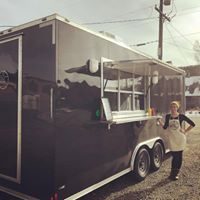
by EcoLeague Communications and Digital Media Assistant Claire Jeantheau, Dickinson ’21
Kara Kessler, a 2011 graduate of Green Mountain College, currently manages her own vegan food truck and holds a passionate interest in human relationships with the natural world. But discovering this path wouldn’t have been possible without her two-time exchanges through EcoLeague, marked by their experiential activities.
When she entered her first year at Green Mountain, Kessler was certain that she would study psychology—the high school class she found most interesting. After a “spontaneous” decision to go on an EcoLeague exchange in fall 2008 to Northland College, she learned the value of studying a broad mix of subjects.
“Green Mountain College had six hundred people at the time, so I decided that it’d be good to get out. And then I got [to Northland] and realized the importance of different areas of study, different professors,” Kessler recalled.
Kessler’s classes at Northland ranged from art and literature to adolescent psychology. However, it was a seminar on ecopsychology—a field examining relationships between humans and the natural world—that she found “the most intriguing, interesting, and defining”.
“I had a professor suggest ecopsychology,” Kessler explained, “and I had never heard of that, but it sounded very interesting. And so I studied ecopsychology… that’s when I realized I know what I want to do, I know what I want to learn more about.”
Having found her academic interest, she made the distinctive choice of completing a second EcoLeague exchange, this time at Prescott College in Fall 2010. By completing two exchanges, she was able to study ecopsychology in depth, particularly through her coursework at Prescott. Kessler credits EcoLeague with giving her the opportunity to discover a field that she wouldn’t have been able to explore at her home college.
“After my first EcoLeague experience, I realized … I can’t study [ecopsychology] at Green Mountain College, I’m going to pursue that individually, I’m going to research and tailor my degree to it.”
Because of EcoLeague’s experiential nature, many of Kessler’s favorite memories of her exchanges took place outside of the classroom. At Northland, she enjoyed studying near Wisconsin’s Lake Superior, a new environment from her home college in Colorado. There, she fondly remembers hiking in local wildlife and seeing the area’s aspens in the fall.
Later at Prescott, where she “got to take a lot of field trips,” she began her semester with a trip to Northern California to study sea psychology and marine biology for a month. The experience was made possible by Prescott’s unique schedule, which begins with an intensive three-week “Block” class before a typical pattern of semester classes.
Kessler now applies the interest in ecopsychology she cultivated in EcoLeague as the owner and operator of a vegan food truck. The Vegetable Express is based in Nederland, Colorado, and describes its goal on social media as “feeding your mind, body, and soul with plant-based foods.”
“On a different level, sustainably, I can heal the planet this way through plant-based eating, and I’m connecting to people and helping people psychologically through food. It’s been about how you relate to it, how you see it,” Kessler said, tying her EcoLeague studies to her current work. “[EcoLeague] definitely prepared me to do what I’m doing.”
If you are passing through Nederland, don’t forget to stop by Kessler’s Vegetable Express to support sustainability and, more importantly, to nurture the mind and body!
Student Exchange Information Session at Northland College
Come learn about the EcoLeague student exchange, and how you can participate! Hosted by EcoLeague Faculty Representative Dr. Sarah Johnson. The session will take place at on Wednesday, September 19, at 5pm, CSE 169.
EcoLeague Faculty Scholar Davis Taylor to Speak At Northland College
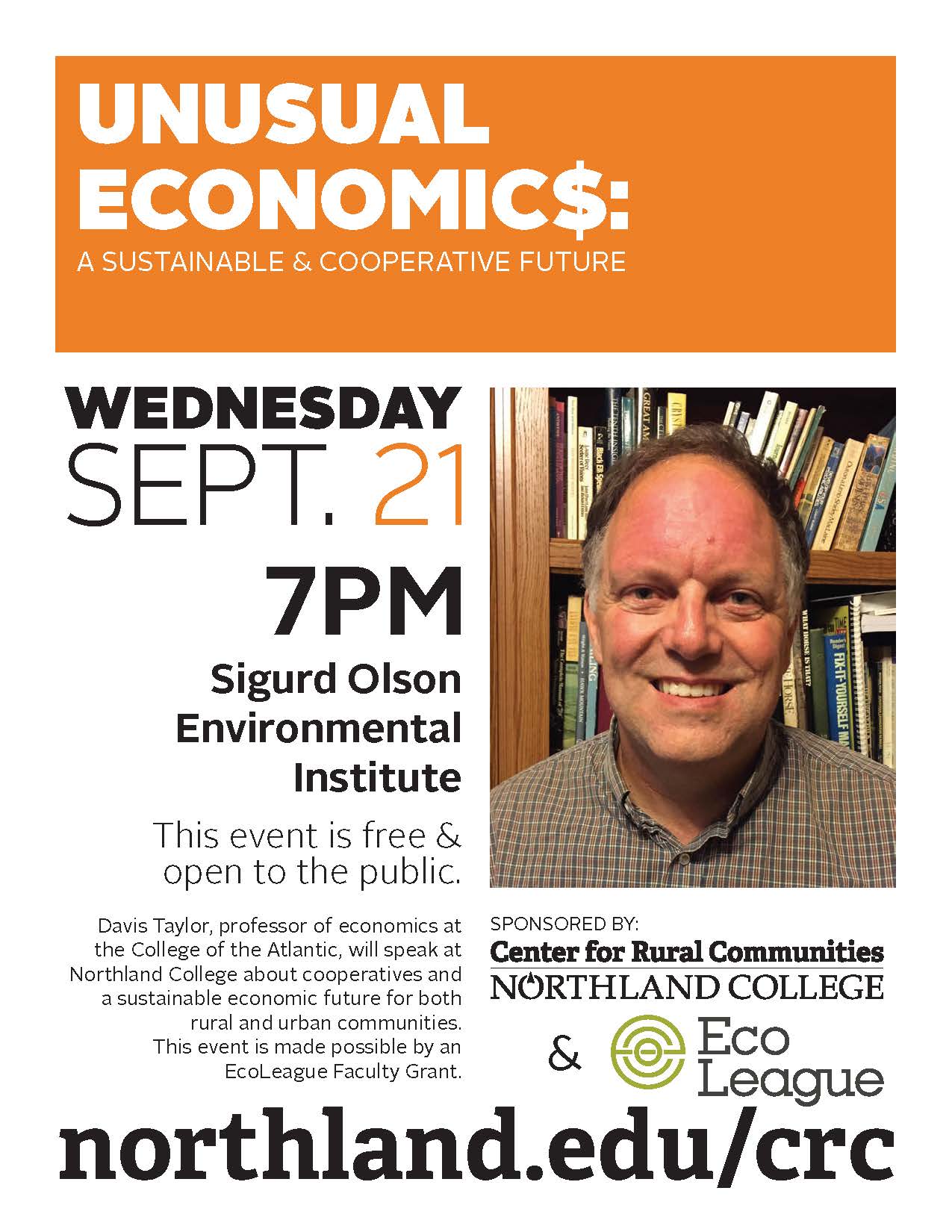
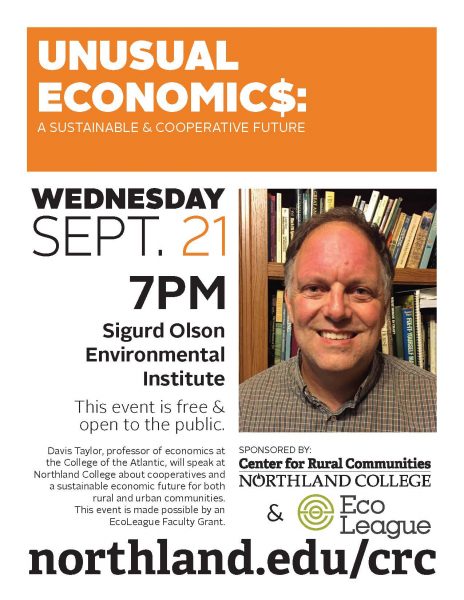 Unusual Economics: A Sustainable and Cooperative Future
Unusual Economics: A Sustainable and Cooperative Future
Davis Taylor, professor of economics at the College of the Atlantic, will speak at Northland College about cooperatives and a sustainable economic future for both rural and urban communities Wednesday, September 21 at 7 p.m. at the Sigurd Olson Environmental Institute.
This event is sponsored by the Northland College Center for Rural Communities and the EcoLeague, a consortium of six colleges and universities that share missions based on environmental responsibility and social change, including College of the Atlantic and Northland College. Davis’ visit is made possible by an EcoLeague Faculty Scholar Grant, which encourages faculty at member schools to collaborate with each other in areas of teaching and research across institutions.
Taylor pursues research in various forms of economics as well as sustainable community development. He has presented papers that expand upon the concepts of community and model the human ecology of forests. His current research efforts include the economics of food systems, the role of institutions in shaping economic development, and the ecological economics of resource collapse.
This event is free and open to the public.
Northland College Visit Day
Visit Days give you the perfect opportunity to learn about Northland first hand. Throughout the day you have the opportunity to tour campus, meet current students, and attend sessions on admission, financial aid, student life, and academics. We can tell you about our campus and our exceptional students, but there’s nothing like seeing Northland for yourself.
NOTE: If you visit by June 1 (or November 1 for winter term) of the year you plan to enroll, you’ll receive a $2,000 Visit Grant,spread over your four years.
Northland College Visit Day
Visit Days give you the perfect opportunity to learn about Northland first hand. Throughout the day you have the opportunity to tour campus, meet current students, and attend sessions on admission, financial aid, student life, and academics. We can tell you about our campus and our exceptional students, but there’s nothing like seeing Northland for yourself.
NOTE: If you visit by June 1 (or November 1 for winter term) of the year you plan to enroll, you’ll receive a $2,000 Visit Grant,spread over your four years.
Northland College Fall Semester Begins
River Canyons and Open Waters: Outdoor Education with EcoLeague
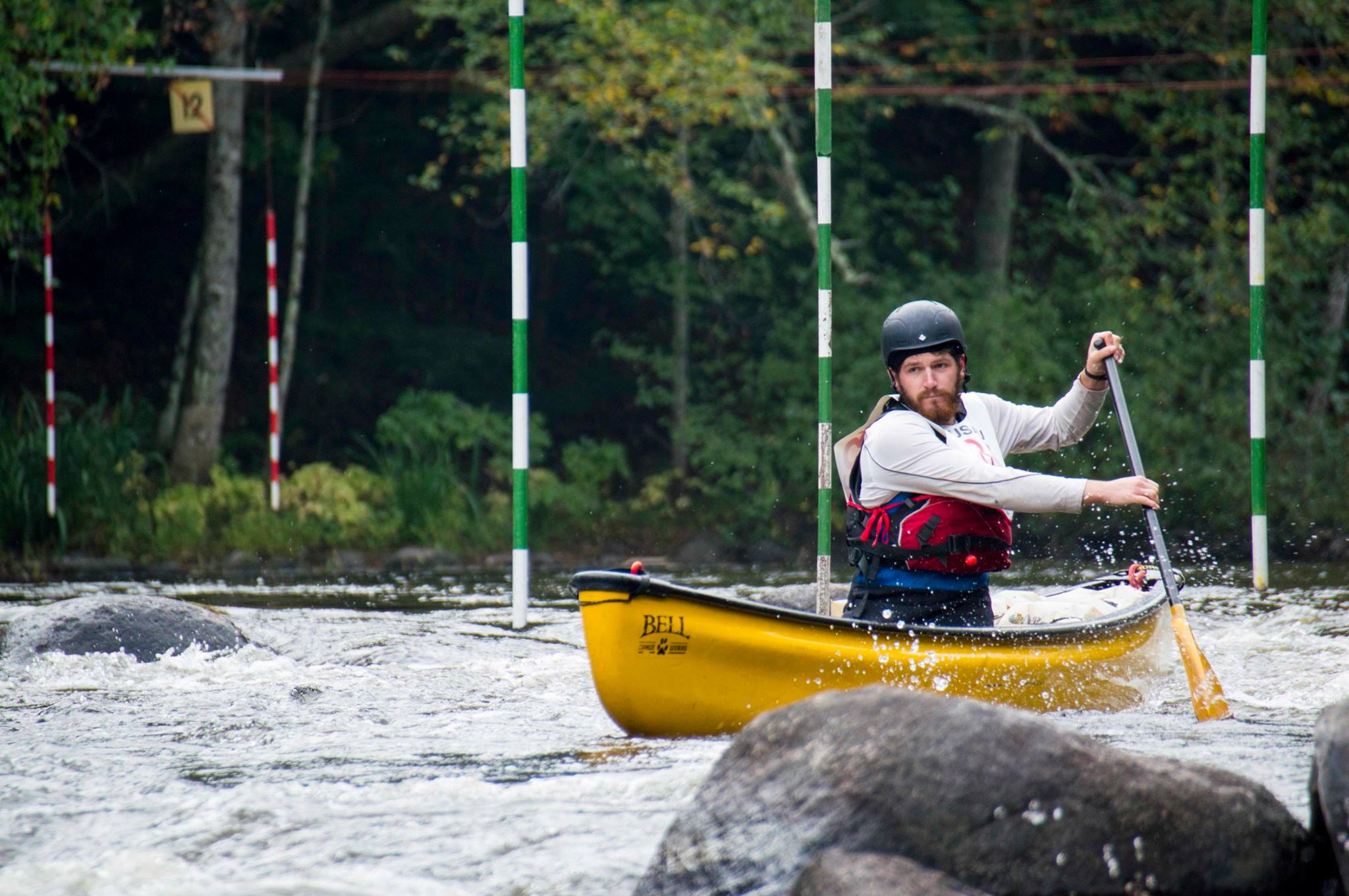
by Jasmyn DiMeglio, EcoLeague Writing Intern
Why pursue a degree in Outdoor Education? Perhaps you have a hearty appetite for travel, perhaps you’re eager to pair wilderness skills with values of equality and justice, or maybe you’re simply interested in fostering personal growth through adventure experiences with at-risk youth. For Dashiell Potter, a junior and EcoLeague exchange student, motivation stems from all of the above.
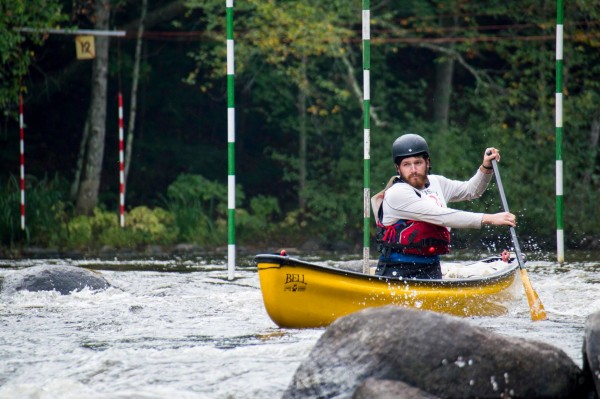
Dashiell Potter competing in a slalom race on the Wolf River as part of the Professional Development Semester.
Exercising experiential education practices, the field of Outdoor Ed. (OED) promotes both interpersonal and intrapersonal growth and aims to connect participants to the natural world. Although based in immensely different nature environments, both Northland and Prescott Colleges’ OED programs share similar core values, philosophies, and theories, which are deeply embedded in their curriculums. Located in the North woods of Ashland, WI, Northland College’s program is shaped by the breathtaking presence of Great Lake Superior as well as by the natural history and community of the region. On the other hand, nearly 1,900 miles away in Prescott, AZ, Prescott College’s program prioritizes field opportunities within the elevated desert landscape.
“Both places give a lot of opportunity for exploration”, says Dashiell Potter. Each offering a unique and wholesome approach to Outdoor Education, both EcoLeague schools serve as great foundations for students hoping to pursue their careers in the outdoors, much like Dashiell, a Northland student who participated in the EcoLeague exchange program and spent an exciting semester at Prescott.
Potter’s interest in wilderness exploration and outdoor travel started at the young age of twelve. Growing up, Dash enjoyed attending a wilderness adventure camp in Northern Minnesota but it wasn’t until after a spending a “gap” year in Patagonia through the National Outdoor Leadership School (NOLS) program, when his passion really “clicked” and he knew he wanted to pursue a degree and eventually a career in the field of Outdoor Education.
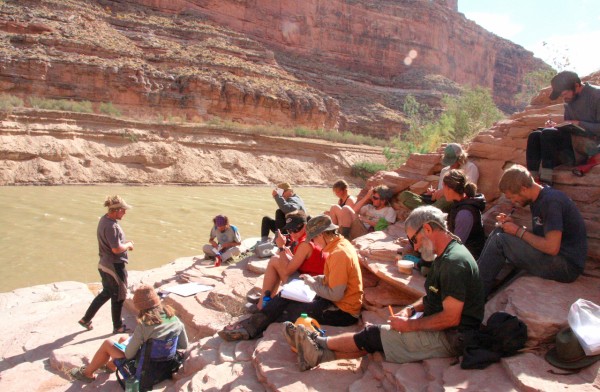
Prescott College’s field-based Wilderness Exploration Landscape course
“Outdoor Ed. is important because it gives people the opportunity to learn and grow in a different environment, other than a classroom,” says Potter. “It’s also based in experiential education, which is hands on learning– you’re learning by doing.” Learning about the importance of experiential education in the two very different regions of WI and AZ was extremely beneficial for Potter’s academic development on the path to his degree. “They both have great place-based learning aspects to their curriculum. It was great to experience a different place and program because I was able to take what I learned in the desert back home to the North woods with me,” he says.
OED also provides students with the opportunity for extensive travel. One of Dashiell’s favorite courses at Northland was “Wilderness Instructor Training”. Designed as a month long intensive field course in Arkansas, Dash learned about technical skills of whitewater paddling while simultaneously refining teaching and wilderness leadership skills. Although he took this course during his freshman year, it is still one of the most memorable for him. “This was an incredible trip where I learned about being a leader, living in the wilderness and working efficiently as a group.
Like Northland, Prescott also offers highly integrated courses which was a highlight for Dash. “These courses blend outdoor education with other disciplines, between content and experience or the tactile and the cognitive,” says David Lovejoy, an Adventure Education professor at Prescott College. Some of the integrated courses available include Bike Packing, Winter Ecology, Rock Climbing and Yoga, Environmental Issues, and Backcountry Skiing.
“Students need to experience the wild and form direct emotional relationships with the natural world. This fosters an appreciation for our place within nature and an understanding of our dependence,” says Lovejoy. A unique element of Prescott’s program that is conducive to forming these nature relationships is their block semester. During the block semester, OED majors have the opportunity for extended travel and field expeditions, as they participate in a single intensive course. This structure enables students to spend a one-month period away from campus to explore and cultivate skills in remote settings.
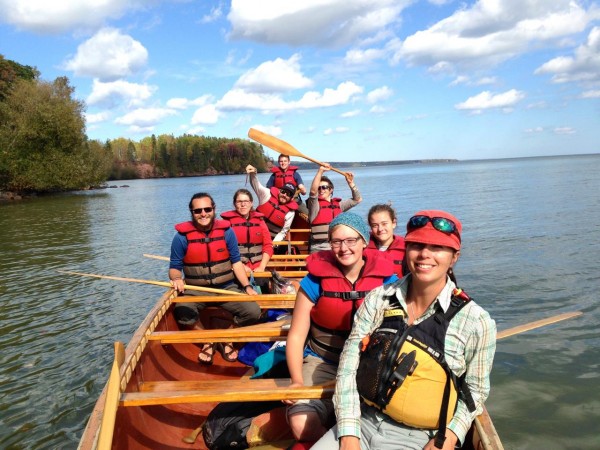
Professor Elizabeth Andre, Dash, and fellow “Fall Block” OED students paddling on Lake Superior in the 36′ Montreal canoe
Back in Ashland, WI, OED students also participate in a series of similarly intensive “block” courses during the fall semester of their junior year at Northland, which Dashiell has recently completed.
“Everyday is something new; we do a variety of things—we cover teaching skills, go to conferences, learn how to identify trees, how to build a debris shelter, or start a fire with a bow drill,” says Potter. Commonly referred to as “Fall Block”, the four-course professional development program combines land travel, water travel, woodland and craft skills (or primitive living skills) and aims to develop students as effective educators.
Another unique aspect to Northland’s OED program is its flexibility, as students are able to select one of three different emphases: Wilderness Leadership, Therapeutic and Universal Design, and Natural History. This way, students are able to focus on cultivating detailed skills useful for specific types of professions they’re interested in pursuing. Nonetheless, Northland’s core values and philosophies are reflected in all three areas of study.
“Our program has a strong foundation in social justice, equity, and inclusion of all people. We also have a foundation in environmental stewardship and sensitivity,” says Northland professor Elizabeth Andre. Through its close analysis of current challenges, practical experience and skill development, as well as future potential for the profession, Northland’s OED curriculum is geared toward promoting a critical awareness amongst their students.
“We believe that outdoor education is a tool for creating the world in which we want to live—through connecting people to the outdoors we help them discover the importance of community both ecological and social,” Andre says. Such philosophies are not only important to the success of their students, but they are also very similar to those at the heart of Prescott’s OED program.
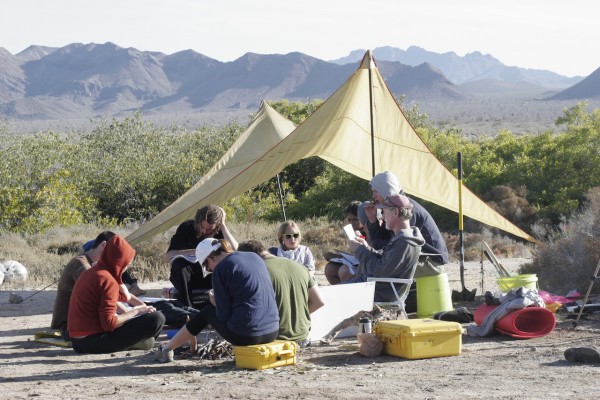
One of Prescott’s Outdoor Classrooms
“Our core values are connecting people with nature and each other in meaningful ways,” says professor Lovejoy. “We value the ability of adventure education to foster self-examination and illuminate issues of fairness and equality.” As these principles are embedded in Prescott’s curriculum, many graduates have reflected favorably upon the attributes gained here. “They have highlighted a passion for working with groups toward a common goal, as well as good communication skills and collaborative abilities,” he says.
As a soon to be graduate, Dashiell Potter is incredibly grateful to have had the opportunity to learn from both professor Andre and professor Lovejoy through his EcoLeague exchange program.
“After I graduate I’d like to work in wilderness therapy or with at-risk youth programs,” he says. “I want to take those people out into the wilderness who don’t have the opportunity to go.” Other professions Northland and Prescott graduates pursue include wilderness guides, outdoor skills instructor, outdoor business owners, program administrators, and environmental educators.
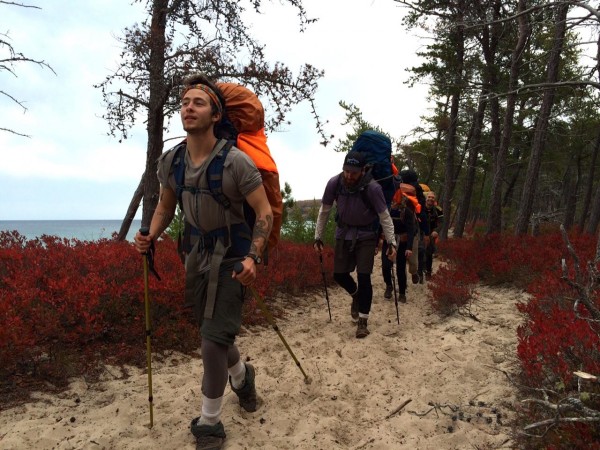
Northland’s Professional Development semester, Dash and other OED students backpacked for six days along the North Country Trail
Regardless of the profession, OED promotes important social and ecological awareness as well as personal growth through intimate connections with the natural world. These EcoLeague schools provide students with extraordinary resources, faculty support, and a riveting landscapes for developing the skills they’ll need to navigate the both outdoor and professional world. “The two areas are pretty incomparable, I have felt wonder paddling the waters of both the North and South. Learning from different professors, experiencing different teaching styles and seeing how they approach adventure education was great to experience,” says Dash.
EcoLeague Stories: Green Mountain College
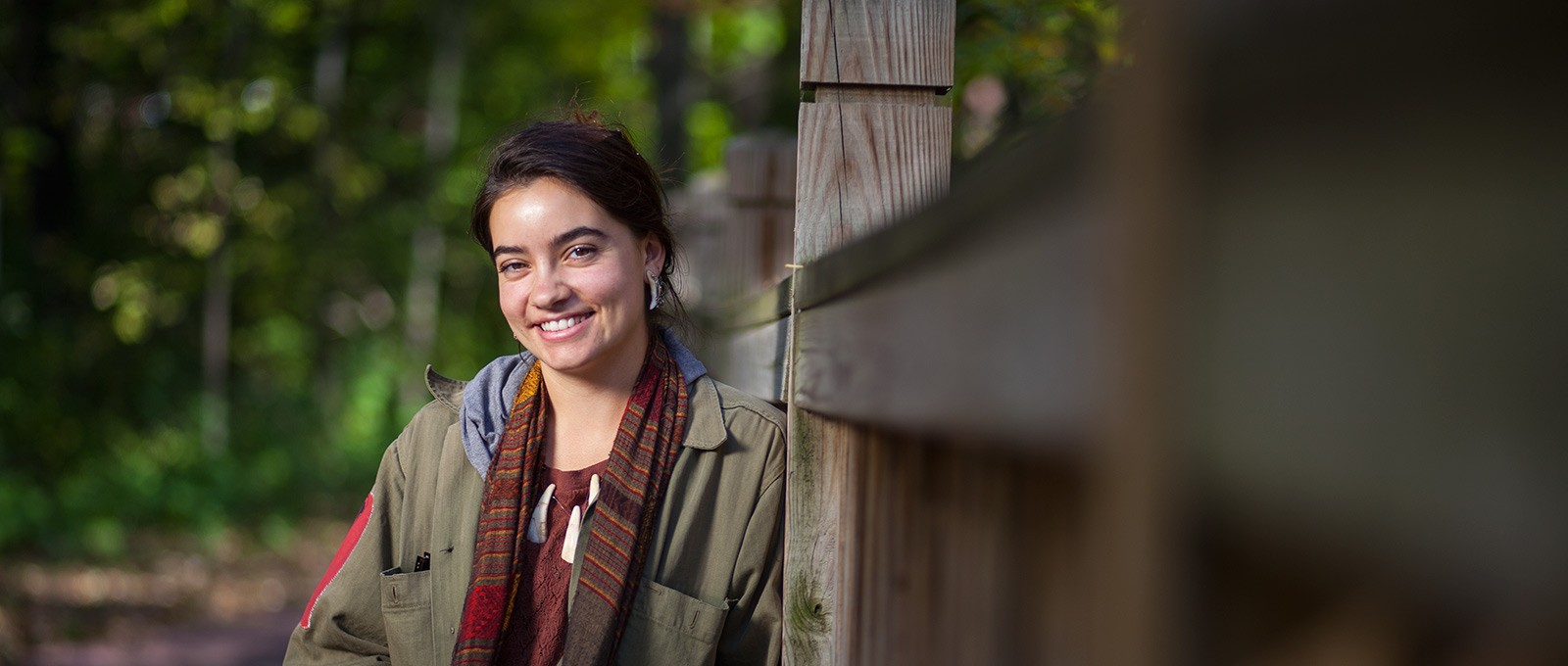
“Any experience where you are immersed in a different culture is worthwhile. Experiencing a different way of life will make you more critical and appreciative of your own beliefs and values.”
Sophie Holtz, a junior at Northland College, in an interview about her EcoLeague exchange to Green Mountain College. Read more about Sophie’s story, and how EcoLeague exchanges expand a student’s academic career and worldview at Northland’s Meet Our Students page.
2016 EcoLeague Retreat Dates and Location Announced
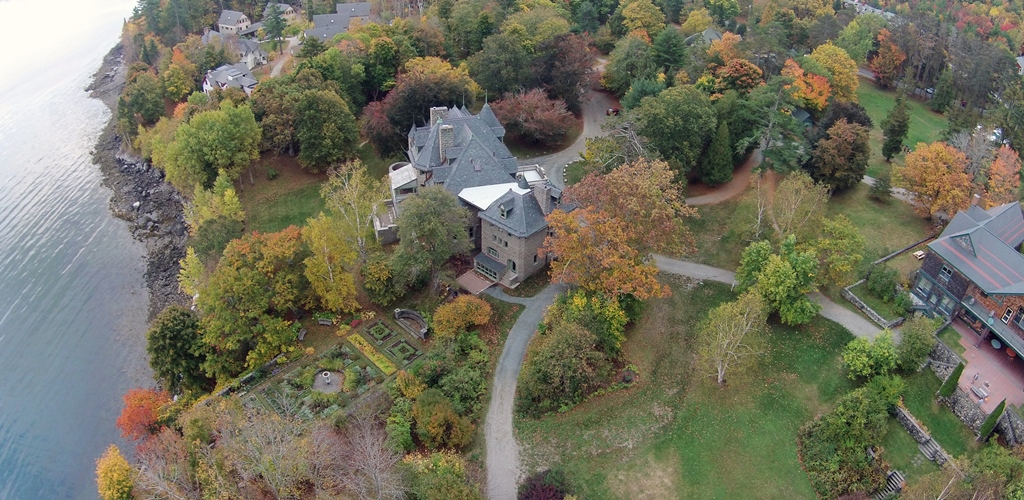
The EcoLeague‘s annual retreat, which brings together representatives from all six consortium schools, will be held from June 16 – 18, 2016 at the College of the Atlantic in Bar Harbor, Maine. This annual retreat creates space for crafting new initiatives and fosters collaboration across campuses. The 2016 theme for the retreat will be announced in the fall; please check back for details.
EcoLeague Schools Gain Praise for Green, Environmental Programs
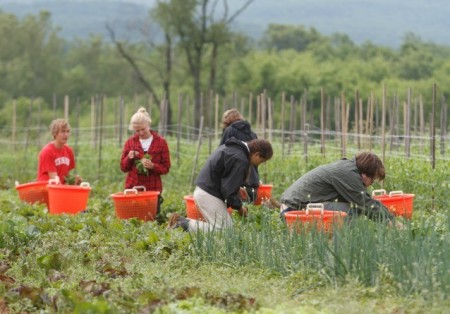
Four EcoLeague Colleges made media lists as green colleges with strong environmental programs recently. Northland College was listed as number one in Mother Nature Network‘s special feature “10 of the Best College Environmental Programs in the U.S”. Green Mountain College and College of the Atlantic were also highlighted; EcoLeague Consortium Schools comprised over a third of the colleges represented in the article. In MNN’s “17 Amazing Green College Campuses” both Dickinson and Green Mountain College were praised for their farm-to-cafeteria programs.
Some highlights from the features:
Northland College: “At Northland College, environmental studies isn’t just a major — it’s a part of the school’s education requirements across all curricula. The Environmental Sciences Department offers majors in environmental chemistry and environmental geosciences; the Natural Resources department includes emphases on ecological restoration, fisheries ecology, and wildlife ecology; and the Nature and Culture Department allows majors in outdoor education, humanity and nature studies. The Sigurd Olson Environmental Institute brings environmental responsibility to the surrounding community, and since 1971 the school has stressed sustainability across the board: Classes like sustainable business, sustainable agriculture, and renewable energy prepare students for a green future, while an off-grid building insulated with straw bales and an eco-friendly residence hall that was a prototype for the LEED rating system help them understand sustainability now.”
College of the Atlantic: “While the other colleges on this list offer a wide variety of environmentally-related degrees, College of the Atlantic takes the opposite approach: Students share one major — human ecology — and then tailor the course load to his or her own specific interests. Social and environmental issues take center stage though, as all the students are expected to address them through their self-designed curriculum and senior project; examples of past projects include a photographic exhibit based on the birds of Hawaii; one student’s wilderness immersion trip along a Virginia creek; and a multimedia fundraiser for a Zimbabwean nonprofit.”
Green Mountain College: “This Vermont school is the first U.S. college to achieve climate neutrality through campus-wide efficiency, adoption of clean energy, and purchase of local carbon offsets. Every course of study has environmental, social and economic sustainability as an overall theme and nearly half of all graduates end up with green careers. The campus generates 80 percent of its heat from a $5.8 million biomass plant that burns locally harvested wood chips, and the school plans to meet all of its energy needs with 100 percent renewable energy by 2020. Green Mountain is also a leader in sustainable farming education. The campus 21-acre Cerridwen Farm supplies produce for the dining hall where food scraps are later collected and used as compost for the farm.”
Dickinson College: “Student farmers grow organic vegetables and raise free-range livestock on this Carlisle, Pennsylvania, school’s 50-acre USDA certified-organic college farm. Food from the farm is served in the dining hall, sold at a local farmers market, and donated to a community food bank. Each day 800 pounds of food waste is sent back to the farm to be converted into compost, cutting in half the volume of waste sent from the dining hall to landfills. The college offers more than 100 sustainability courses, integrated throughout the curriculum and across many majors. In 2013-14, nearly 60 percent of students took at least one sustainability-related course. The school has created a Climate Action Plan to achieve climate neutrality by 2020.”

